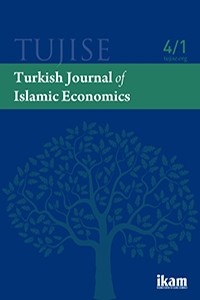ISLAMIC ECONOMICS AS A DISCIPLINE: CLASSIFICATION OF DEFINITION AND CLARIFICATION OF SUBJECT MATTER
ISLAMIC ECONOMICS AS A DISCIPLINE: CLASSIFICATION OF DEFINITION AND CLARIFICATION OF SUBJECT MATTER
Definition for a discipline or body of knowledge is necessary. Islamic economics, being a new discipline in the formation is challenged for a definition that would explain its nature, scope and subject-matter. The definition of Islamic economics would clarify the object of study, its subject matter and indicate the boundaries of its reach. Furthermore, the definition of Islamic economics also would like to inform readers about its underlying norms and aspirations as well as the objectives it intends to serve. Scholars have proposed various definitions of Islamic economics since the idea to have an Islamic economics emerged in the 1970’s. This paper attempts to investigate the approaches taken in developing definitions of Islamic economics, to observe the level of development in defining Islamic economics as a body of knowledge and to classify the various definitions proposed by scholars. The classification of definitions of Islamic economics proposed by scholars will be attempted in order to see the different point of view among the scholars in conceiving Islamic economics’ subject matter, as well as to see the shades of thought in determining the Islamic economics’ object of study.
Keywords:
Islamic economics, definition, subject-matter discipline,
___
- Haneef, Mohamed Aslam. (1997). Islam, the Islamic worldview, and Islamic economics. IIUM Journal of Economics and Management, 5 (1), 39-65.
- Hasan, Zubair. (1998). Islamization of knowledge in economics: Issues and agenda. IIUM Journal of Economics and Management, 6 (2), 1-40.
- Hasanuzzaman, S.M. (1984). Definition of Islamic economics. Journal of Research in Islamic Economics, 1 (2), 49-50.
- Howson, Susan. (2004). The origins of Lionel Robbin’s essay on the nature and significance of economic science. History of Political Economy, 36 (3), 413-443.
- Taskhiri, Ayatullah Muhammad Ali. (1996). Islamic economy: Its ideological and legal foundations. Message of Thaqalayn, 2 (3 & 4), 117 – 132.
- Başlangıç: 2014
- Yayıncı: Research Center for Islamic Economics (ikam)
